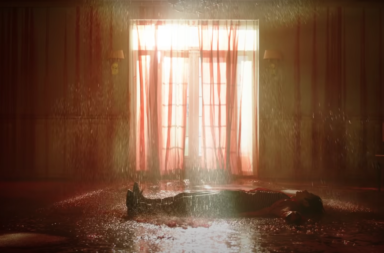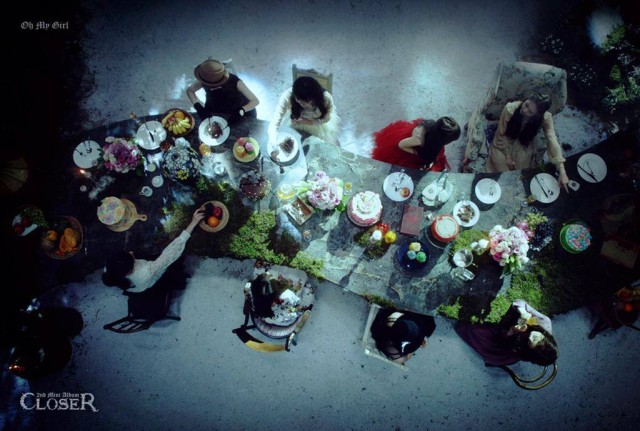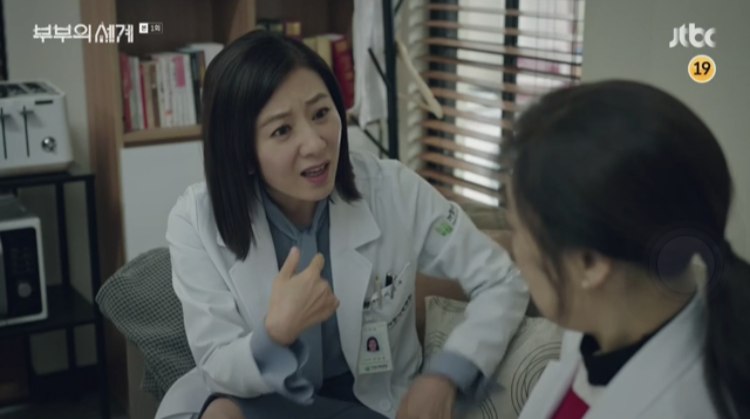
In the time of a major pandemic, TV feels both so minor of a concern but also something that is now imbued with new meaning and value. We are so desperate in these times to process the unprecedented happenings through stories from anywhere and everywhere. No wonder, the film, Contagion reentered and dominated the popular cultural discourse in so many countries and My Secret Terrius shot up onto the top ten on Netflix in my country where K-dramas are not at all mainstream just because of it mentioning the Corona virus. For so many, TV is a necessary survival tool to offer them encouragement, strength and a road map for living. While art is by no means an utility, it cannot be reduced to just a tool for our lifestyle needs; it is very valuable as a guide. So here’s the question, what K-dramas make for a good pandemic/quarantine guide? What K-dramas provide a deeper understanding of the situation at hand?
This is a hard question on the surface to answer. There are only two K-dramas that focus on a virus pandemic, The Virus (OCN) and The End of the World (JTBC). Of course, I do not have the full answer. One can only watch so many K-dramas and my drama intake has declined over the years. At the moment, I am seeking stories in K-dramas that relate to some of the issues that this crisis has brought up, our collective anxiety, enforced isolation/solitude and the emergency state of affairs that we are in. This is just a small attempt to consider the K-dramas that have been somewhat valuable to me in these times.
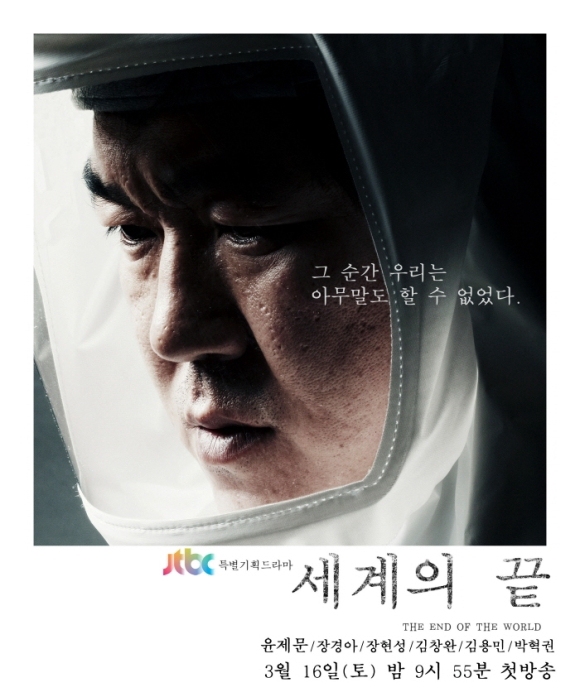
K-dramas have the ability to immerse us into times of drastic change, loss and suffering, displaying the various power dynamics that arise and their effect on people. As I stated before, there are mainly two K-dramas focused on the rapid spread of viruses like the current situation — The Virus (OCN) and The End of the World (JTBC) that both aired in 2013. Neither of them are particularly well-known dramas really, prior to this pandemic. I only knew about The End of the World from the now-nonexistent K-drama blog, Dramatic Eye which placed it near the top of its top 500 K-dramas list. Ergo, I was a bit more inclined towards The End of the World over The Virus particularly since it was directed by renowned director Ahn Pan Seok (Behind the White Tower, Secret Love Affair, Heard it through the grapevine). While I failed to complete it properly, parts of it have remained in my thoughts.
The show takes on the point of view of those within the CDC (a public health organisation) seeking the infection source as fast as possible. At its core, it feels so familiar to our situation right now, with people in many different countries trying to do reverse testing. However there are of course some differences, some key ones being that the lead characters trying to find a single early carrier to find out about the antibodies he has and trying to stop the spread and that this virus has a much higher death rate.
The End of the World paints a grim picture of a pandemic, suggesting that rather than being a collective issue, it is an individual’s issue to safeguard themselves. I have regularly thought about the speech of the lead character that said both at the start and the end of the series:
Just like Saving Private Ryan, the war against the virus is a crazy affair. The moment one of us is infected, we are no longer comrades. We are nothing to each other. You are only an infected body fighting to survive. So your own life, you have to safeguard it yourself.
It is a deeply grim speech but it does ring true in a world where similar individualistic approaches have been used by many governments across the world and organisations. Pandemics, like other major events, have been often reduced to battles of the fittest. The vulnerable and the oppressed are left without anything and forced to rely on the little they have.
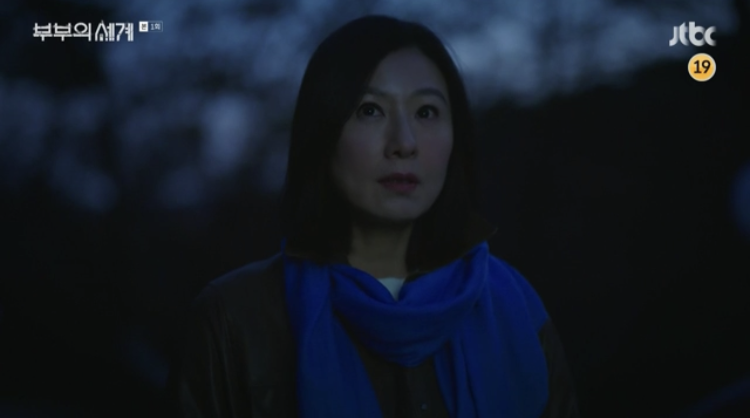
K-dramas reveal the often self-destructive, delusional nature of fear, paranoia, and obsession, as well as our desire for power and control. Obsession has been a major fascination for so many K-dramas and a theme that almost guarantees popularity as shown with Sky Castle and the new highest rated cable drama, The Married Life, both from JTBC. A remake of the BBC’s Doctor Foster, the show was an indulgent but addictive and thrilling psychological drama about a woman discovering her husband’s affair. As someone who watched the original series, I scrambled away after the first 6 episodes, though those first six episodes were probably some of the best K-drama episodes that I will watch this year.
What particularly stuck me was the way that Mo Wan Il, the director, highlighted the destructive ways that obsession and anxiety manifest slowly and gradually. He drew our attention to the bleeding on Sun-woo (Kim Hee-ae)’s thumb from picking at the skin, her beginning to casually speed on the road, and her unconscious stares filled with suspicion. Obsession is portrayed as an all-consuming thing and leads to Sun-woo entering a downward spiral. This story is about a woman seeking to regain control of her life or at least, an illusion of control, a drama about the end of the world for one woman. The drama is emotionally resonant in a time that feels like the end of the world for all of us in some way or another and this show reflects our very human need to control. Much like the pandemic, the show is a reminder of the dangers of obsession, how it puts us and those we love in danger.
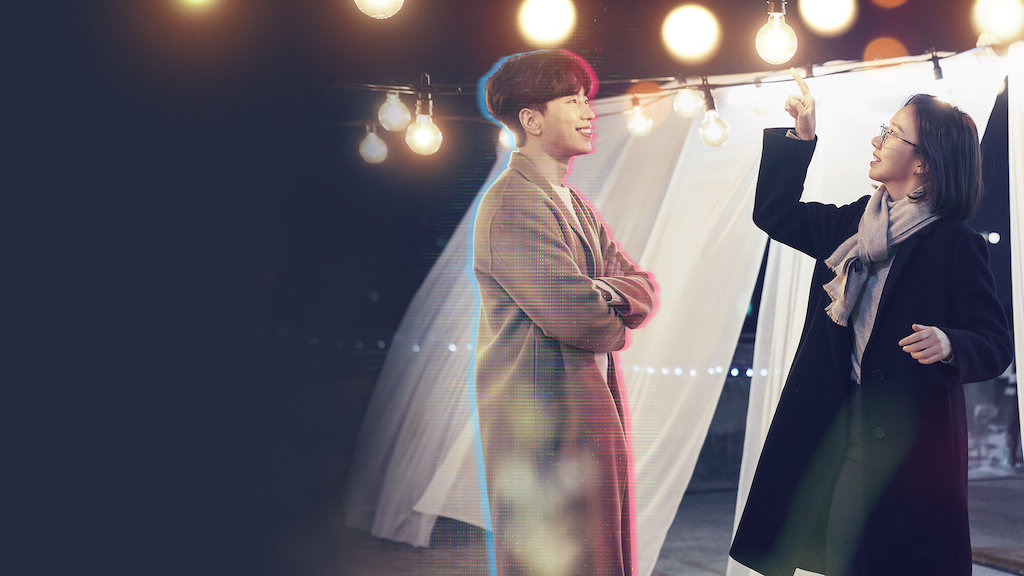
K-dramas have long focused on loneliness and community particularly in relation to technology, communicating fears and hopes about our present and our future. This year, there have been two dramas that feature and focus on artificial intelligence and are directed by the same person, Lee Sang Yeob: My Holo Love and Half of Half. Both dramas tackle themes of isolation, loneliness, and connection in relation to the use of technology, definitely issues of our times. Admittedly I have far more notes on My Holo Love so I will focus on it solely here. For me, it was all about the relationship between technology and humans, and the close attachments and connections we can make with them. My Holo Love was part rom-com and part cyber thriller adapted to shifting notions of romance in the digital era, with a love triangle between humans and a disembodied artificially intelligent operating system. It used these genre tropes to communicate fears and hopes about our relationship with technology.
The show has a complicated relationship between humans and technology. It revels in the usefulness of technology in allowing previously impossible human connections but on the other hand, it demonstrates its potential to further isolate, end privacy, and make people more vulnerable to violence. This is a show that raises questions that have been raised before and are being raised right now in a time when so many relationships are conducted on some form of technology about the nature of love and post-human subjectivity. What does it mean to achieve ever greater intimacy with our machines? Holo was an example of shared “affective computing,” a device created to stimulate companionship and love, but Holo is in many ways a stand in for our phones, video games, TV shows, and so on.
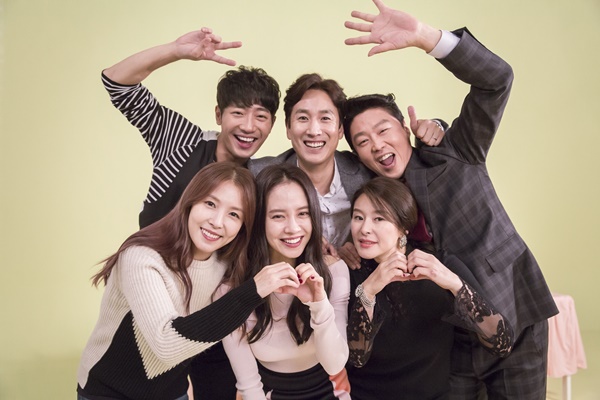
Alongside My Holo Love, I have been thinking about a personal favourite drama that also examines virtual connection thoughtfully, My Wife is Having an Affair Next Week. It provided a sensitive, heartfelt depiction of an online community with a deep understanding of how meaningful these communities can be for so many people. The show on the sidelines of the main storylines took time to depict how networks of care and support were formed online. The group of online commentators were regarded in the show as valid and genuine and in these times, and we do need to remind ourselves that while there are issues with them, online communities are still valuable.
The pandemic has changed the way that we watch TV in new, strange, obvious, and sometimes less obvious ways. In this time, for me, TV acts less of an escape but more of a mirror, reflecting my yearnings, feelings, issues, problems and emotions back at myself. Of course, K-dramas have not really had to adapt to the pandemic, and K-drama filming still rolls on as usual for all the channels (the system is dependent on it). Yet, K-dramas still hold reminders and messages that feel tailored for this time.
(Images via TVN, JTBC, Netflix)

